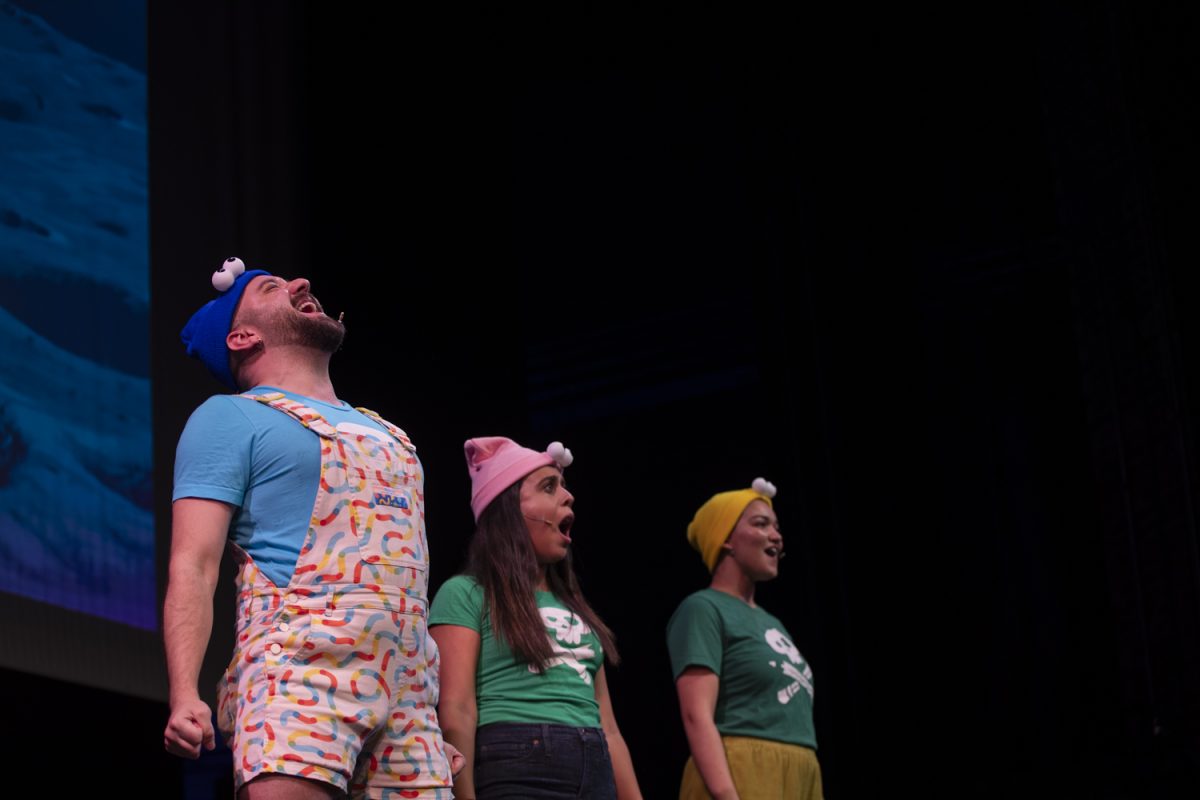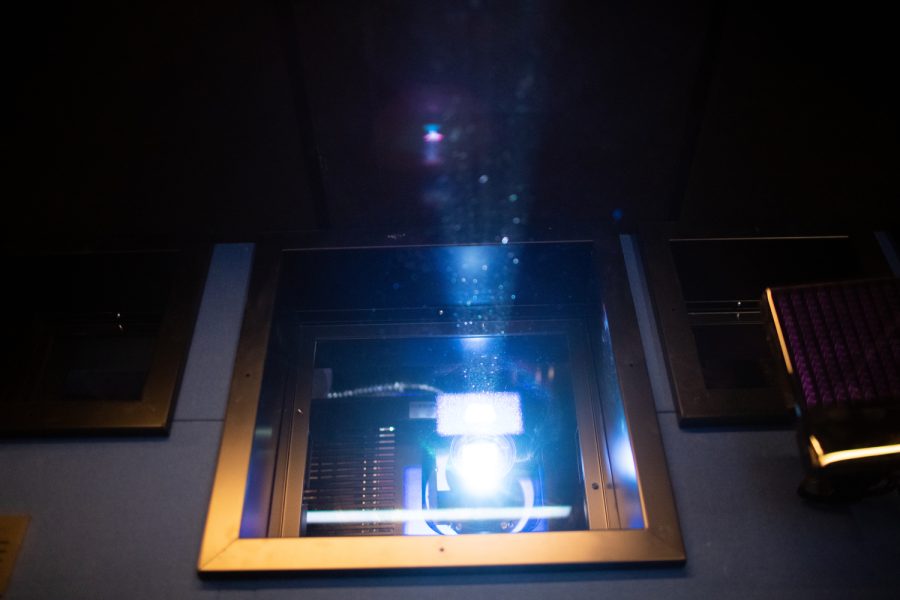Mark Ginsberg, owner of M.C. Ginsberg, discusses his involvement with the cultural and artistic aspects of the community, in addition to the music he listens to while introducing new projects.
The Daily Iowan: How would you describe M.C. Ginsberg to someone with no knowledge of it?
Mark Ginsberg: I would probably say that it’s more theater and drama than it is product. It’s a combination of experience and something tangible and something intangible. Most people understand us to be a jewelry store or look historically at the space and don’t know what the store is or what the building is. Once you come in, it’s part practicum, it’s part studio and custom design, milling, invention, and straight-ahead product.
DI: You were behind the public Piano Project downtown last summer. What was the purpose behind it?
Ginsberg: For 26 years, it’s not just a singular project such as the Piano Project. It’s the Jazz Festival, and the Gallery Walk, and the Friday Night Movie Series or Friday Night Concert Series, Summer of the Arts, and programs such as that. I think the unique thing is that before there was philanthropic marketing or social awareness, we were a small company that was investing in cultural and artistic programming that enhanced quality of life issues. That’s more the story than just a singular project such as the Piano Project.
The Piano Project was started by an artist in London named Luke Jerram, and it happened to be that one of my daughters was studying in London and said, “This is a great idea for Iowa City.” In July 2010, right before the Jazz Festival, Mark Moen had contacted Steve West and me and said, “This is a neat project,” and we just resurrected it, the three of us and then Ryan West.
The idea is that there’s spontaneous music, or spontaneous collaborations, or spontaneous intersections of peoples’ lives that wouldn’t normally cross. One day, I was sitting outside, and I heard somebody playing Verdi, and a woman walked up and started singing opera. And another day, I had a guy who was singing gospel, turning into a kind of rap-gospel, and a guy with a violin came up and started playing, so it made this sort of classical hip-hop. Things like that you could never predict. What we’re hoping is that we would draw lives together and re-create new paradigms to neighborhoods so that they’re more urbanized.
DI: Do you have any similar community projects in line for this year?
Ginsberg: Right now, we’re working on residency programs in the studio. We’re trying to bring together students who are disconnected. What I’m trying to do is bring together somebody who’s in communications to sit down with somebody who’s studio arts, and somebody who’s engineering, and someone who’s medicine, and someone who’s business and see what kind of ideas or products they might come up with. The idea is to disconnect from vertical thinking patterns, in that I’m not putting all engineers in one room together saying, “Solve a problem.” I’m mixing different backgrounds in attempts of creating unique solutions. So, that’s our next project.
DI: What do you enjoy most about what you do?
Ginsberg: That I don’t know what’s going to happen from day-to-day, or hour-to-hour. The unpredictability.
DI: Describe a typical day in the life of Mark Ginsberg.
Ginsberg: I can tell you that my day is not planned out; it’s more chaos theory. I may start off going to meet somebody for coffee and talking about comparative literature or a film or a screenplay. The next hour talking about a self-supported municipal district in which we tax ourselves. The next hour, go for a swim. The next hour, come back and be on the floor as a host for the specific space.
The next hour go to the Summer of the Arts and discuss the lineup for the Jazz Festival. The next hour, talk about the Etruscan or Egyptian revival period and then do a marketing lecture. And then teach a studio-arts practicum. That would be a typical day.
DI: What do you love to do in your spare time?
Ginsberg: Chop wood. I like to split wood and stack wood. I like being outside. It’s very simple, repetitive. It’s very cathartic and balancing for me to not think about anything but splitting the wood in half.
DI: What artists are you listening to right now?
Ginsberg: I like Esther Satterfield. I like listening to Miles Davis always and Coltrane. From time-to-time I like listening to Orchestra out of Boston, which is kind of a fusion jazz but a little bit more disconnected. Basically, I listen to jazz.






